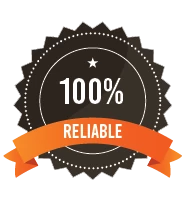Liquor and the Law: Navigating Regulations and Legal Issues Globally

Explore the intricate world of liquor regulations globally, from production standards and distribution laws to labeling requirements and public health policies.
The world of liquor, encompassing everything from whiskey and tequila to sake and rum, is not just a realm of flavors and craftsmanship but also a landscape heavily regulated by laws and policies. Whether you're a producer, distributor, or consumer, understanding these regulations is crucial to navigating the complex terrain of liquor production, distribution, and consumption. Let's delve into some of the key legal aspects influencing the global liquor industry.
It is advisable to have alcohol/liquor drinking license in Maharashtra. You can apply online for alcohol/liquor drinking liquor license here : Click Here to Apply Now
1. Production Regulations
a. Ingredients and Processes:
Each type of liquor has specific regulations governing its production. For instance, Scotch whisky must be made from malted barley and aged in oak casks for a minimum period. Tequila production is tightly regulated, requiring the use of blue agave plants grown in designated regions of Mexico. These regulations ensure consistency and quality while protecting the authenticity and heritage of the product.
b. Licensing and Permits:
Producers must obtain various licenses and permits to operate legally. These can include permits for distillation, blending, bottling, and labeling. Regulations often dictate the location and conditions under which production facilities operate, ensuring compliance with safety and environmental standards.
2. Distribution and Sales Regulations
a. Import and Export Laws:
Liquor import and export laws vary significantly between countries. Some nations impose strict quotas or tariffs on imported alcohol to protect local producers. Trade agreements and treaties also play a significant role in facilitating or restricting international liquor trade.
b. Distribution Channels:
Many jurisdictions have specific regulations governing how liquor can be distributed and sold. This can include requirements for distribution through government-controlled agencies (such as in some Canadian provinces) or through licensed wholesalers and retailers. Direct-to-consumer sales, particularly through online platforms, are increasingly subject to new regulations aimed at balancing consumer convenience with regulatory oversight.
3. Labeling and Advertising
a. Labeling Requirements:
Labels on liquor bottles must comply with detailed regulations concerning information such as alcohol content, origin, ingredients, and health warnings. Misleading or false labeling can lead to legal repercussions, as labels serve not only to inform consumers but also to protect against misrepresentation and ensure product safety.
b. Advertising Restrictions:
Advertising of alcoholic beverages is subject to stringent regulations aimed at preventing excessive consumption, protecting vulnerable populations (such as minors), and avoiding misleading claims. Regulations often govern where and how alcohol can be advertised, including restrictions on content and placement in media.
4. Public Health and Safety
a. Minimum Drinking Age:
Virtually every country sets a minimum legal drinking age to prevent underage consumption. Enforcement varies, but penalties for selling or providing alcohol to minors can be severe.
b. Alcohol Control Policies:
Governments implement various policies to promote responsible consumption and reduce alcohol-related harm. These can include taxation policies to discourage excessive consumption, restrictions on drinking in public places, and initiatives to combat drunk driving.
5. Global Perspectives
a. International Regulations:
The World Health Organization (WHO) and other international bodies provide guidelines and recommendations for alcohol regulation to promote public health and safety on a global scale. These efforts aim to harmonize standards and facilitate cooperation among nations in addressing alcohol-related issues.
b. Cultural Considerations:
Regulations often reflect cultural attitudes towards alcohol consumption. Countries with strong religious or cultural traditions may impose stricter controls or prohibitions on alcohol production and consumption.
Conclusion
Navigating the legal landscape of liquor production, distribution, and consumption requires a nuanced understanding of regulations that vary widely across countries and regions. From stringent production standards and distribution controls to labeling requirements and public health policies, these regulations aim to balance industry interests with consumer protection and public safety. Whether you're a producer looking to expand into new markets or a consumer exploring different spirits, awareness of these legal considerations is essential for ensuring compliance and enjoying liquor responsibly in a global context. Cheers to understanding the laws that shape our favorite libations!
How to get drinking liquor license : Click Here to Apply Now












